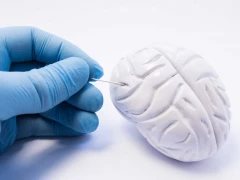
Sleeping Disorder
- Sleeping Disorder
- What are the Causes of Sleep Disorder?
Sleep is a need that maintains the health of our brain and helps it function properly. Poor quality or not enough sleep has multiple potential consequences. Problems such as anxiety, fatigue, low energy, stress, nervousness and inability to focus are encountered when a poor-quality sleep is slept or not enough.
It can be with the emergence of sleep disorder, depression and anxiety diseases. Anxiety and depression trigger insomnia or vice versa, making you sleep more. A person who does not sleep well starts the day with low energy and may be in a state of anxiety, worry, and nervousness throughout the day. As this condition progresses, it leads to depression. Due to the tiredness of the brain, the person cannot focus on anything.
Quality sleep is very important for brain health and mental health. A sleepy person starts the day with positive energy and the signals emanating from the brain are positive. Thus, the person has a more harmonious and calm mood. We should not forget that quality sleep is a very important action for our brain, mental and physical health.
Sleep disorder can cause the problem of not being able to focus, and it can also put people in different psychological moods during the day. For this, we have to be very careful about our sleeping hours. We should not forget that night sleep gives better quality results than day sleep. Night sleep is always better than daytime sleep. It relaxes people better and relieves their fatigue. It is necessary to sleep 8 hours a day. Sleeping at the same time every day is part of quality sleep. If you do not sleep at the same time daily and you do not sleep for 8 hours, it means that you have a sleep disorder.
What are the Causes of Sleep Disorder?
There are multiple reasons that trigger sleep disorder. These usually consist of ailments. The reasons that trigger sleep disorder are as follows;
- Allergic and respiratory problems; An allergic disease known as hay fever, which occurs especially in the spring months and affects the respiratory tract, can cause sleep disorders. At the same time, breathing difficulties that occur with other allergic diseases, upper respiratory tract infections and colds can also cause sleep disturbance.
- Chronic pains; Pain types such as chronically aching head, low back pain, joint pain, leg pain can cause sleep disturbance. These diseases often make you sleepy or wake you up because of severe pain. Thus, it causes sleep disturbance. Arthritis, inflammatory bowel disease, fibromyalgia, chronic fatigue syndrome diseases also cause insomnia.
- Stress and anxiety: It can often lead to sleep disorders in people with a mental illness such as stress and anxiety. People who have sleep disorders due to working in a stressful job and experiencing the same stress every day may become depressed as a result of the continuation of this situation. Staying away from stressful environments and participating in soul-soothing activities will be good for your sleep disorder.
- Nocturia: It is the condition of constantly urinating. People who wake up during the night and need to go to the bathroom constantly and continuously are caught in a state of sleep disorder. Because they cannot have a good quality and proper sleep by constantly waking up, they experience sleep disorders.
Conditions that have underlying health problems, such as these, lead to sleep disorders. People with sleep disorders often experience restless, anxious, stressed, irritable and focus problems. Therefore, they become triggers of some psychological diseases. They are the cause of not only psychological but also visible diseases in the body. They are the cause of diseases that can be easily noticed from the outside, such as visual impairment, a pale and tired face, weakened reflexes, and speech disorder. Good quality and regular sleep are very important.





